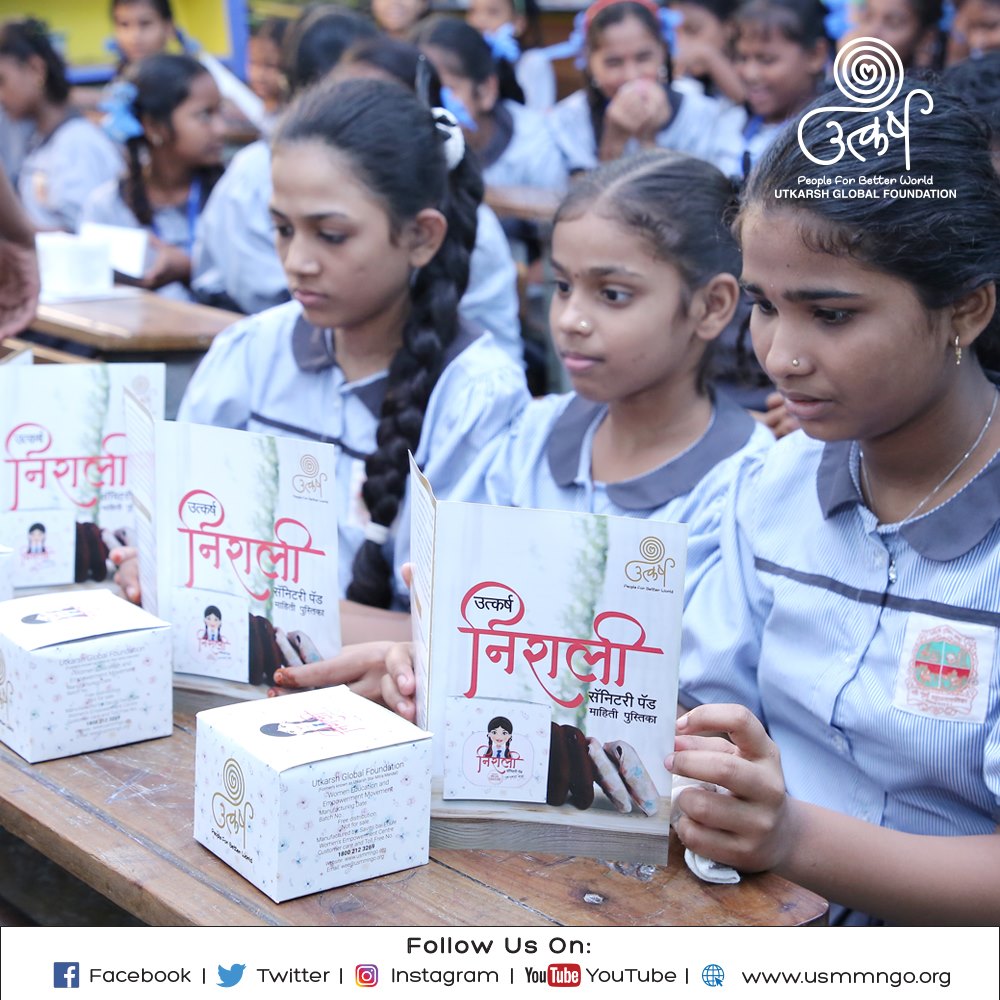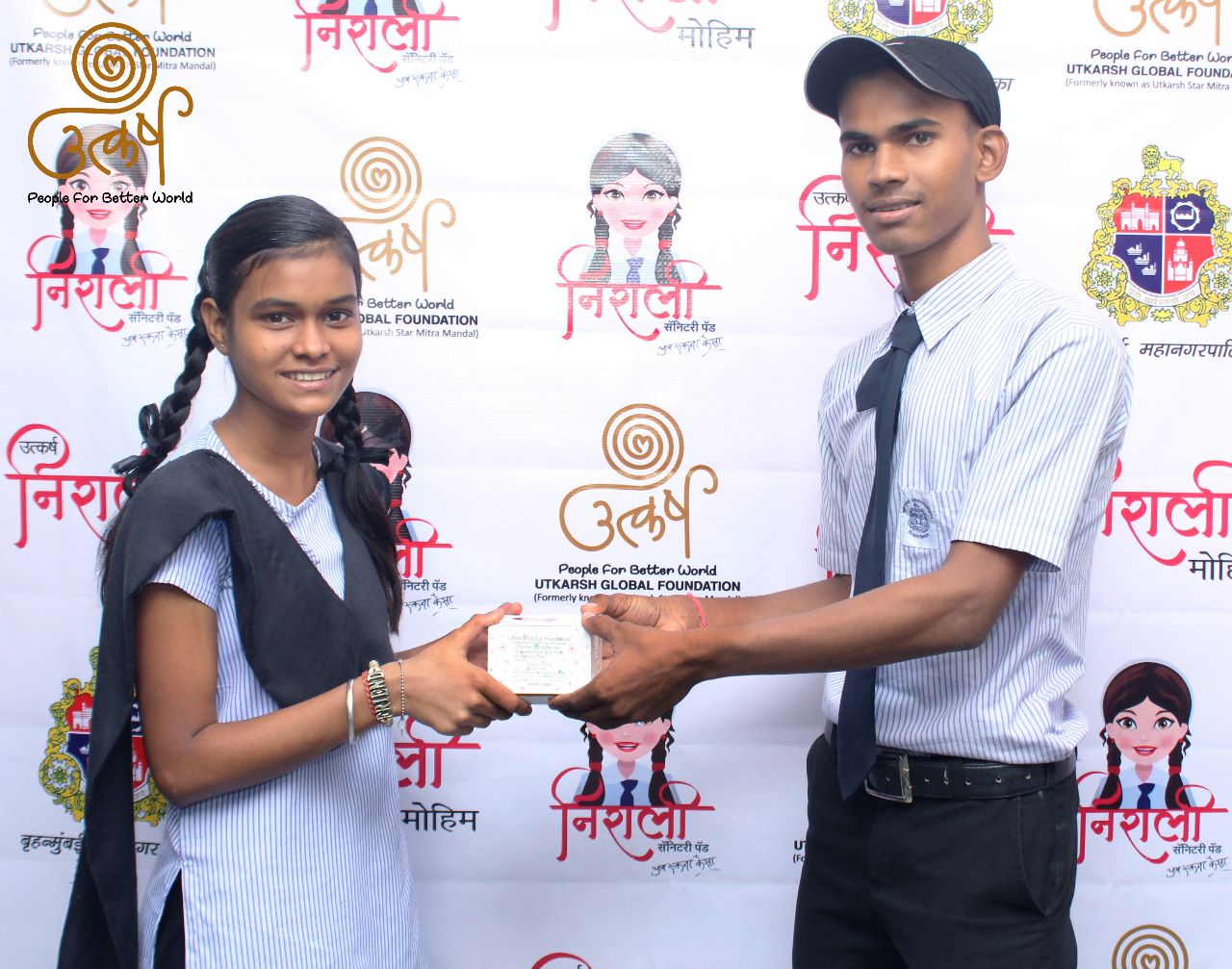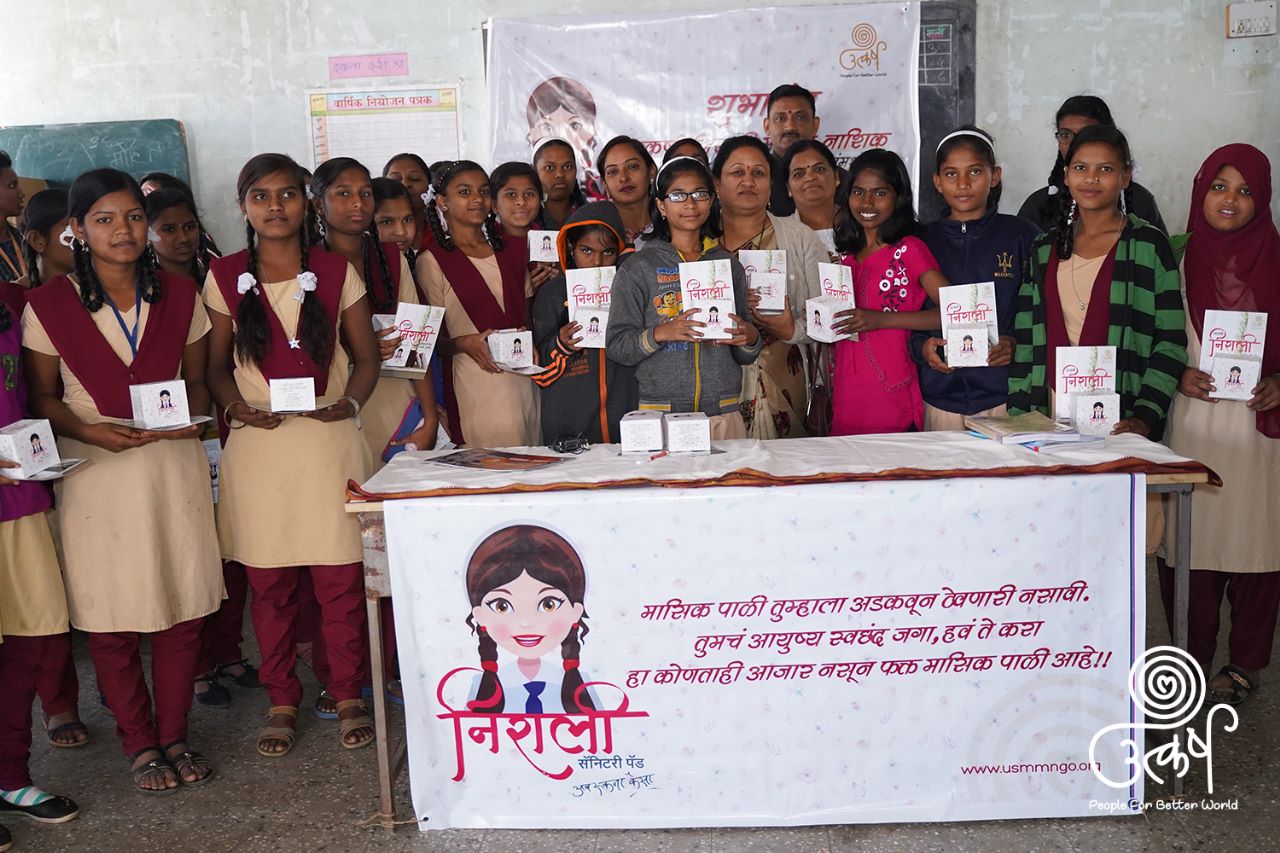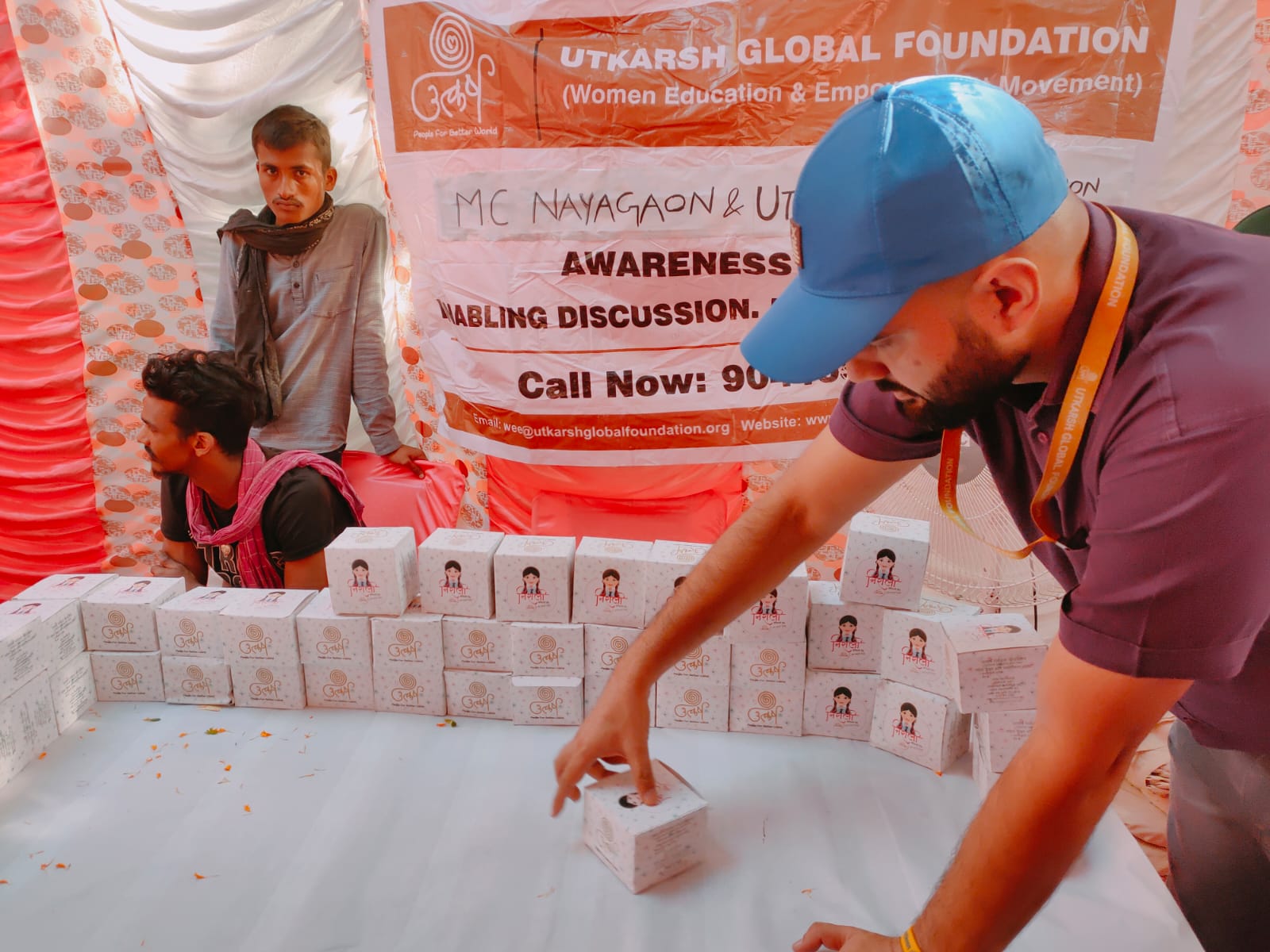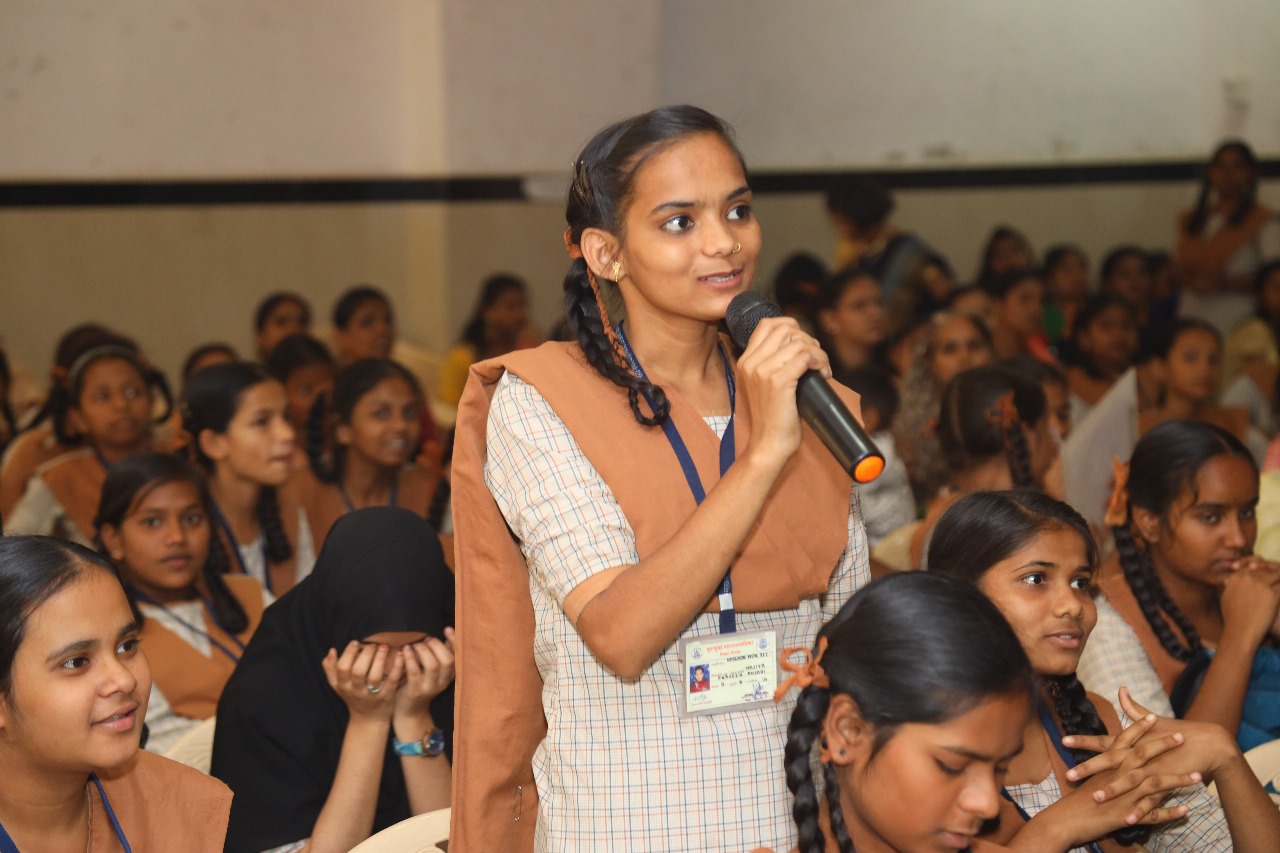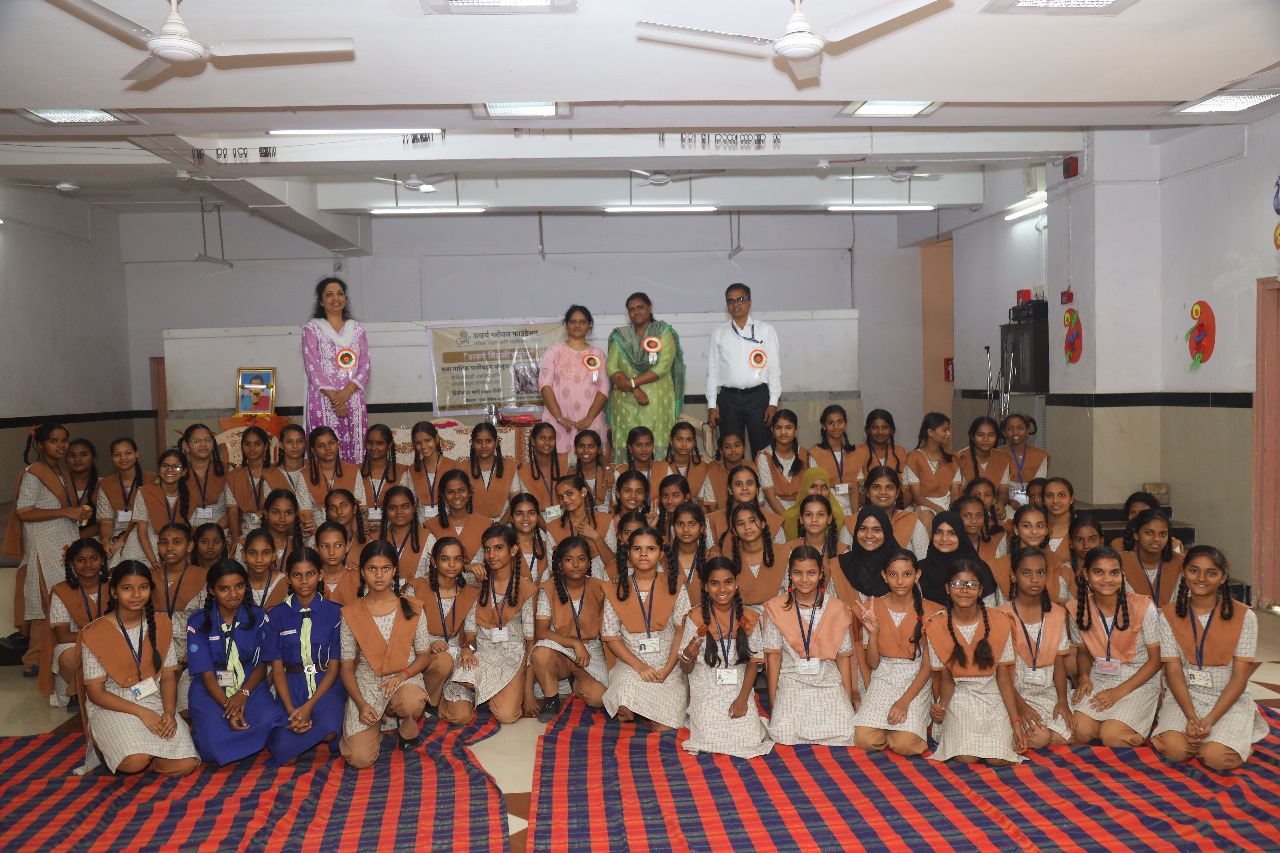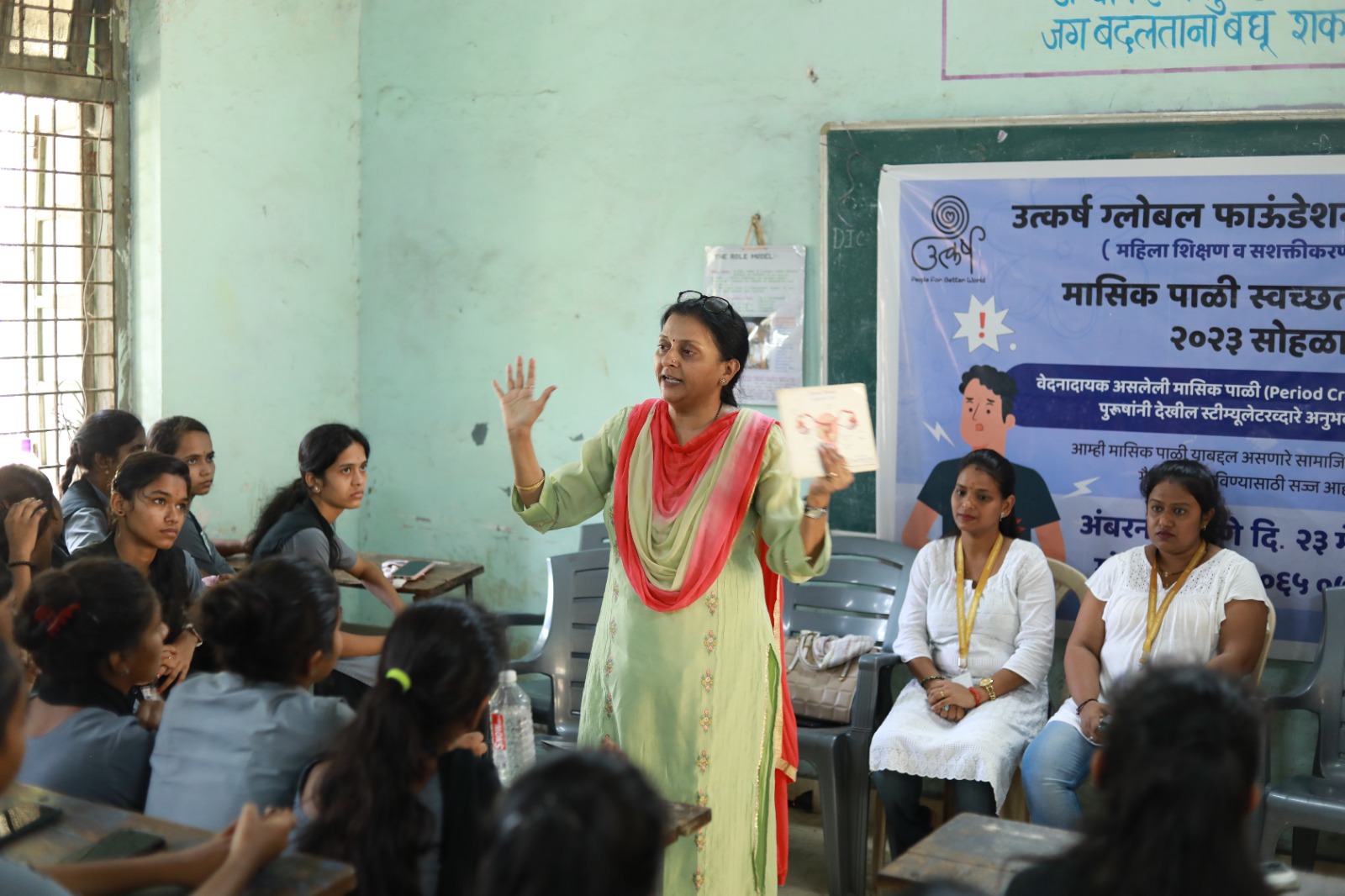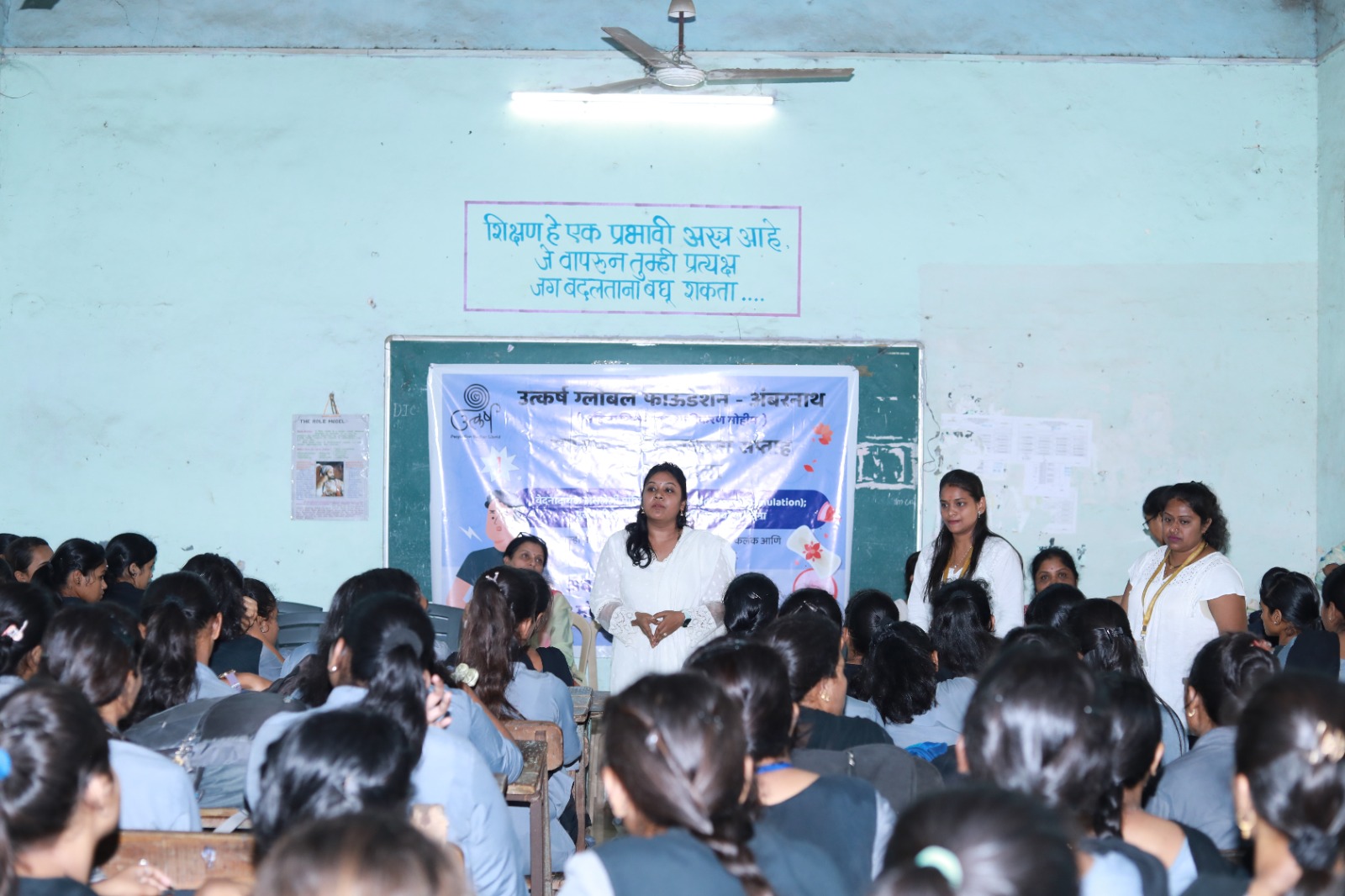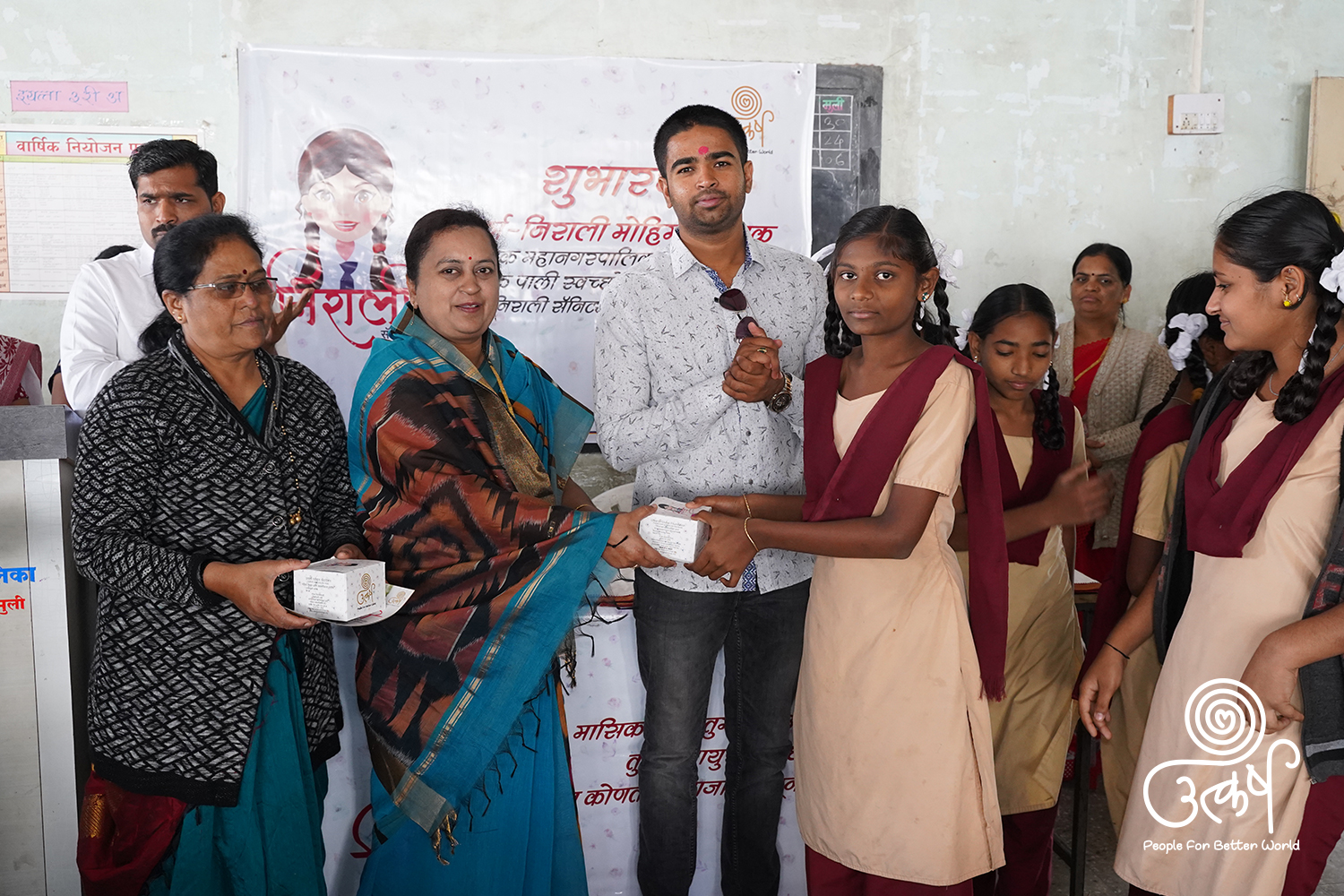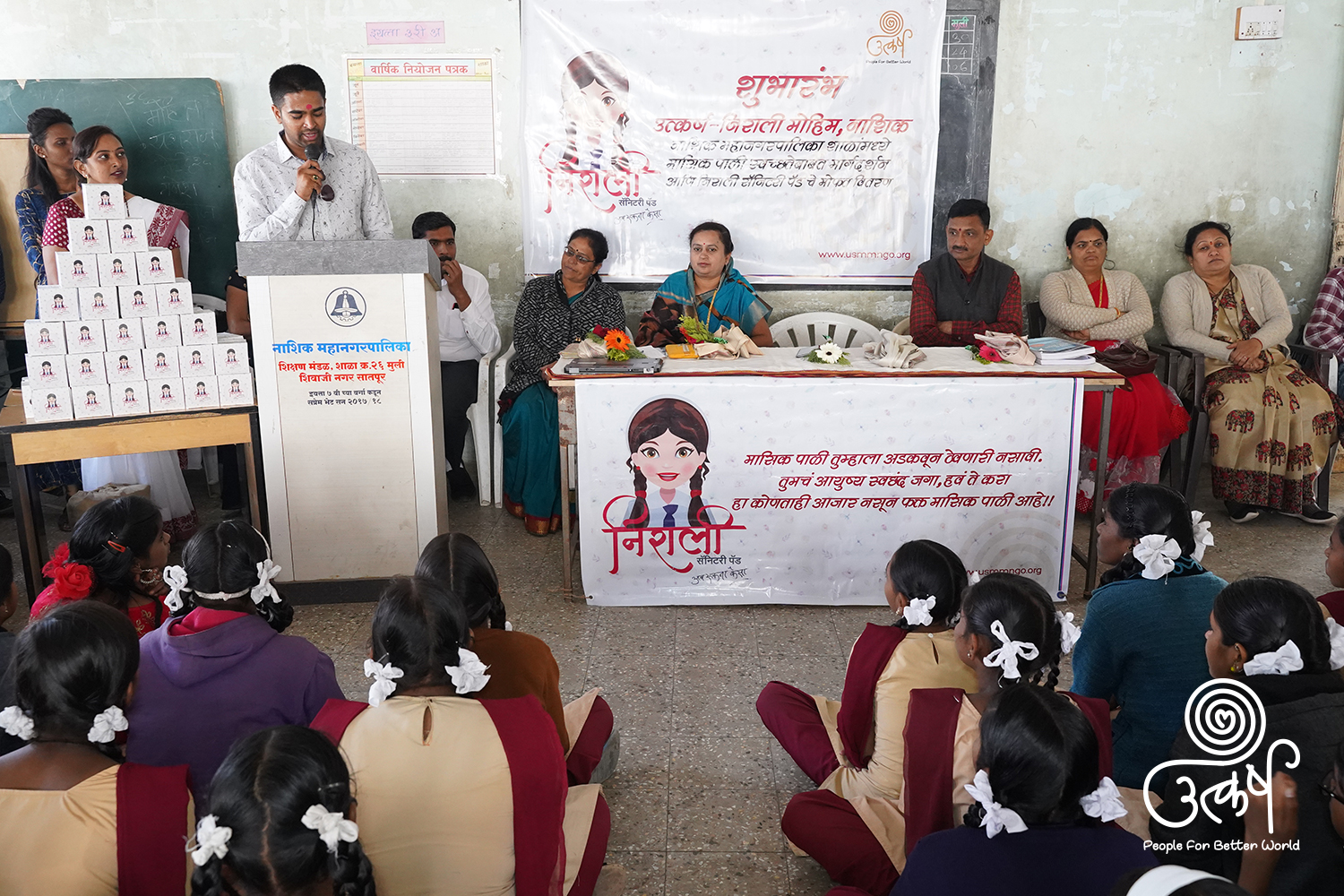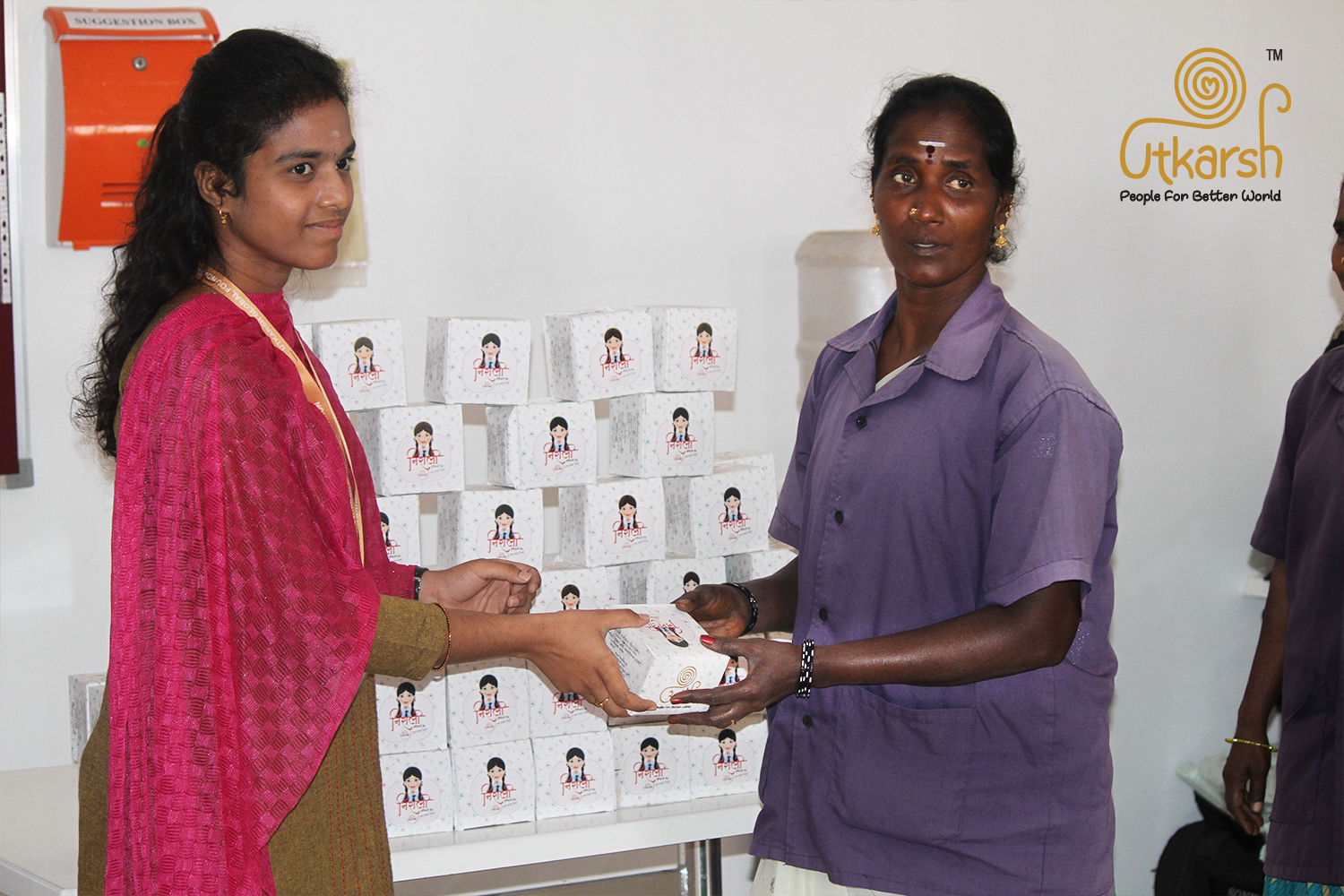Fighting taboos one Utkarsh-Nirali at a time
Awareness of menstrual health, removing taboos, encouraging talks on period, ensuring sustainable menstrual products, and involving boys and men in the conversation are the main objectives of the Utkarsh-Nirali Scheme, conducted in government schools.
It involves:
- Awareness sessions by gynaecologists on menstruation, menstrual disorders, and ways to manage menstrual hygiene. The doctors also talk about myths and taboos related to periods and the need and ways to eliminate them.
- Q & A session for students to pose their queries to the doctor/expert conducting the session
- Distribution of Utkarsh-Nirali Sanitary Napkins
- Awareness talks for boys, so that they could be empathetic towards menstruation and support women and girls in menstrual hygiene management in their homes, schools, colleges, or society
The highlight of the workshop is boys distributing the pads to their female classmates, hence giving out a message loud and clear that menstruation is a natural process, and there is nothing to be ashamed about it.
Utkarsh-Nirali Sanitary Pads are reusable. A packet can be reused for a year. It helps students from financially-weak households as they do not have to spend money on disposable sanitary napkins.
The campaign also addresses women’s health issues, women’s empowerment, and environmental degradation that come with commercial, disposable sanitary napkins.
The three-prong approach of Utkarsh towards women’s empowerment, women’s health, and environmental protection
Women’s Health
Commercial sanitary napkins are widely advertised and are popular. Do you know what they contain? A study published on the website of NCBI (National Centre for Biotechnology Information), US, finds that “sanitary pads and diapers contain higher phthalate contents than those in common commercial plastic products!”
The disposable napkins are made from old newspapers, which are bleached using chlorine. Dioxin and trihalomethane, the by-products released during the process, can enter the body through such napkins. Dioxin is labelled as a Class 1 cancer-causing agent and is also one of the worst environmental pollutants. The other fatal effects of dioxin on the body are endocrine disruption, abnormal tissue growth in reproductive organs, suppression of the immune system, endometriosis, breast, pelvic, and other cancers.
Utkarsh-Nirali Sanitary Napkins do not contain chemicals and are safe and irritation-free. They are effective as well as comfortable.
Women’s Empowerment
Utkarsh-Nirali Sanitary Napkins are made by women from underprivileged backgrounds from tribal, rural, and urban areas. Thousands of women are earning a livelihood through Utkarsh-Nirali Sanitary Napkins and supporting their families.
Environmental Protection
The disposable sanitary napkins available in shops and unfortunately widely used are not only harmful to women’s health but also hazardous to the environment. The used sanitary napkins end up in landfills or oceans and remain in the environment for years emanating poisonous gases into the atmosphere. Utkarsh-Nirali Sanitary Napkins are biodegradable as they are made from cloth and contain no plastic. They are reusable and can be used for a year. Utkarsh-Nirali Sanitary Napkins are environment-friendly and thus the best solution for effective and sustainable menstrual hygiene management.
Utkarsh-Nirali Sanitary Napkins aren’t any ordinary sanitary napkins, but a powerful tool against the taboos and stigma that menstruating women face. We do not provide them in black bags, but we flaunt the pads in beautifully designed packaging, to send a clear message that menstruation is not a crime and neither is it dirty.
Utkarsh-Nirali Campaign
- Covered 200+ municipal schools
- Distributed 75,000 sanitary napkins
- Benefited over 2,00,000 girls and boys
Let’s Talk Periods
Door-to-door awareness campaigns on menstrual health and hygiene
“Let’s Talk Periods!” Reached 500 households in Mulund via door-to-door campaigns
